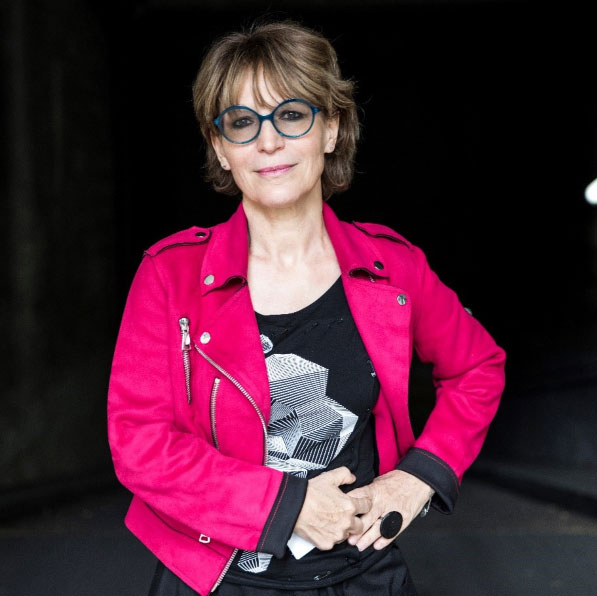Amnesty International Secretary General Agnès CALLAMARD monitors the enforcement of the human right to information. In a world where most media is accessed via digital platforms, she lays out the conditions for ensuring universal access to reliable information, which is still far from being achieved.
Article 19 of the Universal Declaration of Human Rights (UDHR) specifies that everyone has the right to “seek, receive and impart information”: in other words, the human right of access to information. Do you feel that this right is being enforced today?
Agnès Callamard : The right of access to information as defined in Article 19 of the UDHR is not yet effective worldwide. States are supposed to guarantee this right by allowing all residents—including the poorest and those living in the most remote rural areas—to receive information. This goal is still far from being attained. Firstly, there is a wide gap between rich and poor countries in terms of access to digital services, and this digital divide causes unequal access to information. Furthermore, digital platforms, which have become the main way of accessing information, offer a massive amount of content in which users are bombarded with propaganda, untruths, lies and violence. The proliferation of content does not improve its quality. Numerous studies show that there is 40 times more violent, sexist, racist and discriminatory content on digital platforms than information based on human rights values. This is not an ideal environment for people to exercise critical thinking or for personal and collective growth. What makes this situation even more worrying is that right of access to information enables other human rights, for example, the right to health: the right to find out about risks and available treatments, among other things. During the Covid-19 pandemic, the media censorship of around 50 governments—China first among them—had significant health consequences.
In this context, should we promote a human right of access to reliable information?
I don’t think so, because it is certainly not up to governments to guarantee the reliability of information. They have created so much propaganda over the course of history that they cannot be trusted with this. In addition, with billions of pieces of content being produced each day, governments would be unable to check all of it. It is individuals who, through critical thinking, must take responsibility for gauging the reliability of the information they receive. However, to enable them to do this, we must ensure that they are not automatically subjected to content that violates international law. States must therefore regulate the media and
social networks, demanding that they use transparent algorithms which make it possible to verify that they do not favour content that advocates “national, racial or religious hatred,” or that constitutes “incitement to discrimination, hostility or violence.” Such content is prohibited under Article 20 of the International Covenant on Civil and Political Rights. An algorithm promoting the visibility of such content would itself be in violation of this article.
If not through a new right, how can we ensure that people have greater access to reliable information, which is often lost in a sea of digital content?
Firstly, reliable information, just like content based on respect for human rights, must make up a greater proportion of that sea. Despite the development of investigative media and consortia of journalists who do excellent work, their production remains marginal in terms of quantity. This content must then be better promoted by Big Tech algorithms, which means forcing these corporations to adhere to a business model that
does not violate human rights. It is also essential to prohibit concentrated ownership of the media in the hands of a small group of people or companies that may be tempted to use it to express their own views. Lastly, we must protect local and community media in order to ensure that everyone has access to reliable information that respects human rights.

NETWORKING FOR MEDIA SUPPORT
The Pact for the Future and the Digital Compass—two documents intended to direct UN efforts over the next 20 years for a peaceful and sustainable world—were validated by the organisation’s General Assembly in New York in 2024. The approved text of the Pact contains items added during consultations with the media support sector, including references to “access to reliable information and freedom of expression” which were absent from the initial version. This was the result of a collective effort involving the Global Forum for Media Development, of which Fondation Hirondelle is a member.
Also in partnership with this network, Fondation Hirondelle contributed to the development of new OECD principles aimed at providing effective support for the media, an important document which received Swiss backing. Lastly, Fondation Hirondelle was one of several organisations in the sector that met to develop the Media Viability Manifesto, a shared reference document and a theory of change to improve economic viability for the media. This initiative aims to jointly tackle a vital and complex issue, define credible results and share information with funding organisations about what goals are achievable, and how to achieve them.

